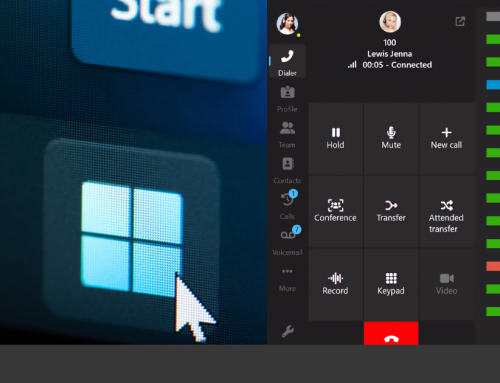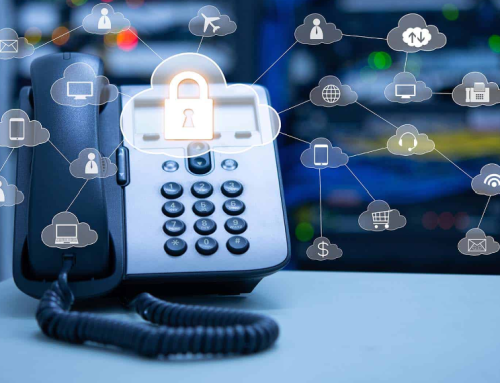Broadband Vs Leased Line
At Digital Exchange in Sheffield, we have been looking at the questions we are frequently asked from our clients or prospective clients so, let’s look at one of these today “What is the difference between Broadband and a Leased Line?”.
In today’s digital age, connectivity is an essential requirement for both individuals and businesses. For businesses, this need for connectivity is even more critical as it can significantly impact their overall productivity, efficiency, and profitability.
Broadband and leased lines are two commonly used forms of connectivity for businesses, but which one is better?
Broadband refers to a type of internet connection that uses traditional copper or fibre-optic cables to transmit data. Compared to other connectivity options, broadband is the most cost-effective solution for most small to medium-sized businesses. Leased Lines or dedicated lines Offer synchronous connectivity, dedicated bandwidth and a guaranteed level of service.
Although broadband is a stable and reliable internet connectivity source, it can be affected by oversubscription, which can significantly slow down internet speeds during peak periods. On the other hand, leased lines offer a consistent, usually with a guaranteed service level agreement (SLA) for connectivity with guaranteed throughput speeds. This makes leased lines ideal for businesses that require high-speed and reliable connectivity to enable real-time data communication and large data transfers. Leased lines offer a complete end-to-end solution by providing businesses with dedicated bandwidths that are not shared with other users. This means that lease lines provide businesses with stable and consistent internet speeds for uploading and downloading vast amounts of data. Consequently, this enables businesses to operate and communicate more effectively, minimising time and resource wastage. Conversely, broadband is prone to service interruptions, which can result in significant downtime that can be an inconvenience to businesses. Furthermore, leased lines offer significantly higher speeds than broadband, making them ideal for businesses that need to work with large data files, stream high-quality videos and run critical applications. Leased line service providers also provide around-the-clock technical support, which is vital for businesses that require continuous service.
We have lots more information relating to the different connection types over in our other blogpost about Notification of the end of BT Copper Broadband Services.

Conclusion
While broadband remains the most cost-effective connectivity option for businesses (in other words it’s cheaper), the benefits of leased lines far outweigh the costs for medium and large businesses (and even some small businesses). Leased lines offer higher bandwidth, guaranteed end-to-end connectivity with 24/7 technical support, and provide a reliable service level agreement, which is crucial for the successful operation of any business. Overall, businesses should consider the extent of their connectivity needs, the size of their operations, and the level of data transmission and transfer required to determine the most appropriate connectivity option for their business.
Summary
If you prefer peace of mind, then a Leased Line is what you should choose. If you prefer lower cost, then standard business broadband is probably the right choice for you. More information is available over at Wikipedia here Wikipedia Info.
We’d love to talk to you more about your connectivity needs, don’t hesitate to get in touch for a friendly chat with one of our connectivity specialists, here at Sheffield’s leading connectivity provider – Digital Exchange!
If you would like to find out more visit our contact us page on our website or get in touch with our Sheffield office on 0330 2020 188.
Broadband Vs Leased Line
At Digital Exchange in Sheffield, we have been looking at the questions we are frequently asked from our clients or prospective clients so, let’s look at one of these today “What is the difference between Broadband and a Leased Line?”.
In today’s digital age, connectivity is an essential requirement for both individuals and businesses. For businesses, this need for connectivity is even more critical as it can significantly impact their overall productivity, efficiency, and profitability.
Broadband and leased lines are two commonly used forms of connectivity for businesses, but which one is better?
Broadband refers to a type of internet connection that uses traditional copper or fibre-optic cables to transmit data. Compared to other connectivity options, broadband is the most cost-effective solution for most small to medium-sized businesses. Leased Lines or dedicated lines Offer synchronous connectivity, dedicated bandwidth and a guaranteed level of service.
Although broadband is a stable and reliable internet connectivity source, it can be affected by oversubscription, which can significantly slow down internet speeds during peak periods. On the other hand, leased lines offer a consistent, usually with a guaranteed service level agreement (SLA) for connectivity with guaranteed throughput speeds. This makes leased lines ideal for businesses that require high-speed and reliable connectivity to enable real-time data communication and large data transfers. Leased lines offer a complete end-to-end solution by providing businesses with dedicated bandwidths that are not shared with other users. This means that lease lines provide businesses with stable and consistent internet speeds for uploading and downloading vast amounts of data. Consequently, this enables businesses to operate and communicate more effectively, minimising time and resource wastage. Conversely, broadband is prone to service interruptions, which can result in significant downtime that can be an inconvenience to businesses. Furthermore, leased lines offer significantly higher speeds than broadband, making them ideal for businesses that need to work with large data files, stream high-quality videos and run critical applications. Leased line service providers also provide around-the-clock technical support, which is vital for businesses that require continuous service.
We have lots more information relating to the different connection types over in our other blogpost about Notification of the end of BT Copper Broadband Services.

Conclusion
While broadband remains the most cost-effective connectivity option for businesses (in other words it’s cheaper), the benefits of leased lines far outweigh the costs for medium and large businesses (and even some small businesses). Leased lines offer higher bandwidth, guaranteed end-to-end connectivity with 24/7 technical support, and provide a reliable service level agreement, which is crucial for the successful operation of any business. Overall, businesses should consider the extent of their connectivity needs, the size of their operations, and the level of data transmission and transfer required to determine the most appropriate connectivity option for their business.
Summary
If you prefer peace of mind, then a Leased Line is what you should choose. If you prefer lower cost, then standard business broadband is probably the right choice for you. More information is available over at Wikipedia here Wikipedia Info.
We’d love to talk to you more about your connectivity needs, don’t hesitate to get in touch for a friendly chat with one of our connectivity specialists, here at Sheffield’s leading connectivity provider – Digital Exchange!
If you would like to find out more visit our contact us page on our website or get in touch with our Sheffield office on 0330 2020 188.







